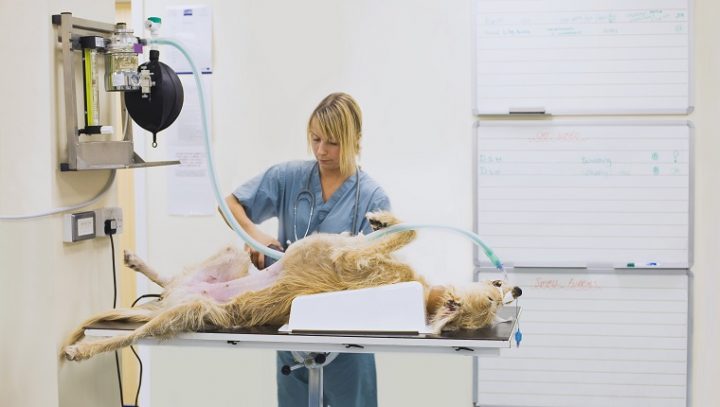 Gallstones in dogs are formed by bacteria, bile, calcium salts, cholesterol and protein, and sometimes cause blockage of the gallbladder.
Gallstones in dogs are formed by bacteria, bile, calcium salts, cholesterol and protein, and sometimes cause blockage of the gallbladder.
They are also known as gallstones and they may be as small as a particle or large enough to perforate. Cholelithiasis is the medical term for the formation of stones in a dog’s gallbladder.
The gallbladder is important because it releases bile, a substance that helps the immune system by killing fungi and bacteria. It neutralizes stomach acid and helps food enter the small intestine. Gallstones can interfere with this process and cause complications in dogs.
If you notice signs of gallstones in your dog, you should see your veterinarian right away. Here’s what you should know about the symptoms, causes and treatment of gallstones in dogs.
Gallstones symptoms in dogs Symptoms of gallstones in dogs may not be obvious at all, or they may be severe.
Symptoms of gallstones in dogs may not be obvious at all, or they may be severe.
Larger gallstones can cause more serious problems because they can lead to blockages or perforations that allow bile to flow into the abdomen. This can be life-threatening.
Sometimes gallstones will appear on x-rays, while other times they will need to be found through exploratory surgery or other methods.
Common symptoms of gallbladder stones in dogs include:
- Vomiting and nausea
- Get cold
- Fever
- Abdominal pain
- Jaundice yellowing of the eyes or skin, called jaundice
- lethargy
- Weaknesses
- Loss of appetite
- Changes in demeanor or aggression when touched
- Pain or bleeding during urination
Causes of gallstones in dogs Gallstones in dogs are usually a secondary symptom of other diseases.
Gallstones in dogs are usually a secondary symptom of other diseases.
Certain breeds are more likely to develop gallstones. These breeds include Miniature Schnauzers, Poodles and Shetland Sheepdogs, but any dog breed can have gallstones.
Generally, gallstones form when the gallbladder does not function properly. Gallstones are more likely to develop when the flow of bile is blocked or when the bile is saturated with pigment, calcium or cholesterol.
Gallstones may result from the accumulation of bile due to blockage or other causes. Inflammation of the gallbladder can make it susceptible to infection, which can lead to the formation of stones.
Gallstones are also thought to be formed by protein or taurine deficiency, environmental toxins, or changes in the inner layer of the gallbladder.
Treatment of gallstones in dogs If the stones are small enough, your veterinarian’s treatment for your dog may be as simple as medication to dissolve the stones and then antibiotics to prevent infection. Your vet may also prescribe some vitamins to explain any defects that may have caused the gallbladder to form.
If the stones are small enough, your veterinarian’s treatment for your dog may be as simple as medication to dissolve the stones and then antibiotics to prevent infection. Your vet may also prescribe some vitamins to explain any defects that may have caused the gallbladder to form.
Certain complications such as jaundice require intravenous vitamin K1, and if the liver is damaged, vitamin E may be taken to aid organ function.
Veterinarians usually recommend a high-protein, low-fat diet for dogs with gallbladder complications.
If the stones are large enough to cause a blockage in the future or have already caused a blockage, your veterinarian may consider surgery. Veterinarians will often remove the entire gallbladder, and dogs can live healthy lives without this organ, as long as they are strictly monitored and on a diet. This is usually the case with chronic gallbladder problems.
Modern veterinarians often use laparoscopic surgery, which is less invasive and leaves the dog with an excellent chance of recovery.
Preventing gallstones with a balanced diet is the best solution, especially for those breeds that are prone to gallstones.
Has your dog ever had gallstones? How did your vet treat it? Please let us know in the comments below!

